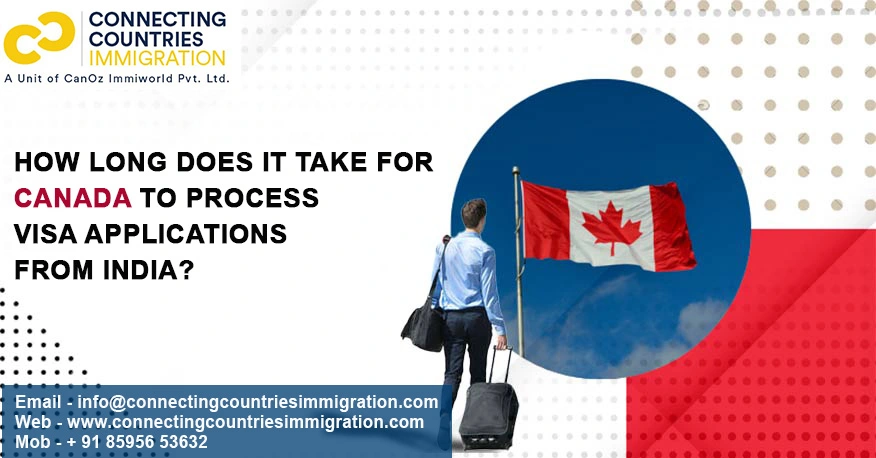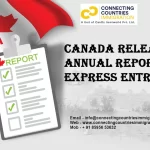Canada has continued to process visa applications from India, including student and worker temporary residence visas, as well as permanent resident and family-class sponsorship applications.
As of September 26, 2023, the average wait periods for Indian applicants across five separate permit/visa processing streams are listed below. Please keep in mind that these processing periods are subject to change and can vary based on the specifics of one’s application. Please visit the Immigration, Refugees, and Citizenship Canada (IRCC) website for the most up-to-date information.
Work Permits and Visas
Work permits allow foreign nationals to work and live in Canada for the duration of their work permit.
Take note of the distinction between a visa and a permit for immigration purposes—a permit allows someone to legally remain, work, and/or study in Canada. A visa allows foreign citizens to enter Canada through its borders. Permits usually consume the majority of processing time. If a foreign national is granted a permit, they must next present their passport to an IRCC office for visa stamping if they want to travel outside of Canada and then return.
Permits to Study and Visas
Foreign nationals can study and live in Canada with a study permit. Some study permits also allow students to work either full-time or part-time while studying.
The contrast between work permits and visas extends to study permits as well—once an applicant’s study permit is issued, they must submit their passport for visa stamping if they want to travel outside of Canada and then return.
The processing of study permits differs depending on whether they are applied for inside or outside of Canada. Furthermore, processing periods may differ depending on whether the application is for an original study permit or an extension. Finally, study permit processing times can be shortened by applying through the Student Direct Stream—a specialized study permit stream available to Indian students.
Visas for Visitors
A visiting visa is required for Indian citizens who intend to visit Canada. As visitor visas do not allow holders to work or study in Canada, they do not have accompanying permits (though visitors are free to pursue study and/or work permits if they choose). Visitors can also apply for a visitor record, which is an extension of their visiting visa. This is not a visa, but rather a document that permits travellers to stay in Canada for an extended period of time.
The processing of visitor visas is affected by whether the application is made inside or outside of Canada.
Immigration Based on Economic Class
Economic class immigration encompasses several immigration programs. These include the Express Entry-managed programs—the Federal Skilled Worker Program (FSWP), the Federal Skilled Trades Program (FSTP), and the Canadian Experience Class (CEC), as well as immigration options within the Provincial Nominee Program (PNP), which differ by province.
This sector also covers the Atlantic Immigration Program, the Self-Employed Persons Program (federal), the Start-up Visa, Quebec immigration streams (including the Quebec Business Class and the Quebec Regular Skilled Worker Program), and caregiver paths.
Candidates who are accepted into these programs are awarded permanent residence (PR) in Canada upon arrival.
Immigration Through Family Sponsorship
Indian spouses, dependent children, or other family members can be sponsored to come to Canada by Canadian permanent residents and citizens of Indian descent. Spousal sponsorships, Dependent child sponsorships, or for other family members, the Super-Visa and Parents and Grandparents Program (PGP) are the major ways to achieve this.
Processing times for spousal sponsorships vary depending on whether the spouse being sponsored is currently in Canada and whether the couple will be residing in or outside of Quebec (as both the federal and provincial governments are required by law to process immigration applications to Quebec).



